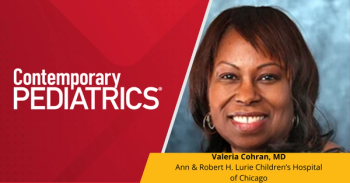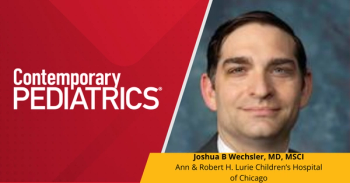
- June 2022
- Volume 40
- Issue 5
Delaying surgery for Hirschsprung disease may be risky
Results of a study in patients with Hirschsprung disease for whom surgery was anticipated but had not yet been performed found that 17% developed complications.
Results of a retrospective study examining the prevalence and severity of complications in patients with Hirschsprung disease (HD) for whom surgery was anticipated but had not yet been performed, found that 17% of such patients developed complications. Infants awaiting surgery who had total colonic aganglionosis (TCA) were at signi cantly greater risk of complications than those with short-segment disease.
Investigators from the Netherlands analyzed data for 132 patients with HD who received surgery at their center during a 1-year period. Patients with HD usually undergo surgery when they are aged 3 to 6 months. Of the 22 patients who developed complications, 20 had at least 1 major complication, with the remaining 2 having complications that were minor. Some infants developed multiple complications: 5 patients developed 2 complications, 2 patients developed 4, 1 patient developed 6, and 1 patient developed 8.
The most common complication was bowel perforation: 6 cases were caused by transanal irrigation (TAI), 1 by Hirschsprung-associated enterocolitis, and 2 associated with meconium ileus. There were 2 cases of central venous line sepsis and 4 of sepsis caused by bowel perforation. The third most prevalent complications were ileus and persistent obstructions. Most often the complications arose in the hospital (64%), with the remainder appearing at home. Mean age at presentation of complications was 4 weeks (range, 0-25 weeks) with 10 patients having short-segment disease (45%), 3 with long-segment disease (14%), and 9 with TCA (41%).
Investigators also found that a TAI-induced perforation in TCA can be highly
dangerous. One child in the study group with such a perforation died and another was at risk of doing so. Given these findings, investigators recommended limiting the wait time for surgery in children with HD and suspected TCA.
Thoughts from Dr Farber
If your surgical colleague suggests waiting until a child with TCA is older and larger, which would make surgery technically easier, suggest they read this article.
Reference:
Beltman L, Labib H, Oosterlaan J, van Heurn E, Derikx J. Risk factors for complications in patients with Hirschsprung disease while awaiting surgery: beware of bowel perforation. J Pediat Surg. Published online March 2, 2022. doi:10.1016/j.jpedsurg.2022.02.022
Articles in this issue
over 3 years ago
Best practices on discussing birth control for adolescentsover 3 years ago
Providing gender-affirming care in pediatricsover 3 years ago
Trends in sinusitisover 3 years ago
Does that child really have an antibiotic allergy?over 3 years ago
Teens find that adhering to STI treatment isn’t easyover 3 years ago
Dermatologic differences in a diverse populationover 3 years ago
Some STIs spike, but the declines are just as concerningNewsletter
Access practical, evidence-based guidance to support better care for our youngest patients. Join our email list for the latest clinical updates.







